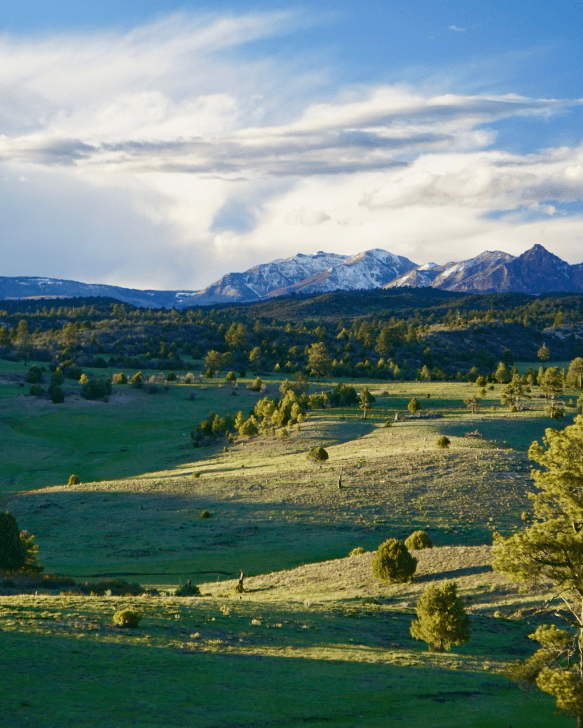As a land investor, good research and knowledge could save you bundles. Avoid these seven big mistakes when choosing your ranch investment property. Be sure to delve into these oft overlooked issues. Think through details of the land investment. Is it exactly what you want?
And get help. Internet access tends to make buyers overly confident. Successful investors consult with other professionals to guide them into wise decisions. Buying land for an investment is more complicated than buying condominiums. An expert ranch broker can help you avoid serious mistakes. With the help of a real estate agent with experience in large acreage, you will never make the following mistakes while buying land for an investment:
- Picking wrong property
- Ignoring future ROI
- Finding legal quagmires
- Bumping into tax issues
- Hurrying to close the deal
- Jumping the money gun
- Ignoring the local area
Picking wrong property
Make sure the property suits your goals. If you are an out of sight, out of mind investor, be sure your ranch broker knows that. On the other hand, if you want to live on a recreational property and go hunting and fishing – still gaining a return on investment, your ranch broker will guide you to a different land investment.
Remember that buying a ranch or farm for investment needs to be weighed against the investor’s tolerance for stress. It is a mistake to buy land that requires too much direct or intensive management if you do not want to be involved. There can be additional stress on landowners to make business ventures financially successful. If a landowner wants to enjoy the land, be extra careful to keep the stress level lower than the benefits the landowner yearns for.
Every property is different. The risks and benefits, the maintenance and management, and the projected evaluation for farms and ranches should all enter the equation. While one ranch sits in highly desirable ski resort terrain, the next farm may be miles away from any potential building development. Each of these properties can be good investments but neither of them may be the best investment for you and your family.
Ignoring future ROI
Investment land buyers need to do the research. Crunch the numbers. Beat the bushes and find out the actual viability of the financial assets. The seller may provide information but buyers who do not perform due diligence may overlook a major liability.
If there is no acceptable return on investment, why go for a farmland investment? Buy raw land only if it is likely to generate income. Otherwise, when your investment land sells, it may not generate any capital gain at all. Financial leverage and business risk must be considered.
Finding legal quagmires
Legal specifications affect large property. Find out about easements, mineral rights, water rights, riparian rights, littoral rights, flood plains, adjoining public lands. Zoning, codes, and federal, county, and local regulations can trip up your ideas, too. Utilities and telecommunication services can turn into critical legal issues, too.
Bumping into tax issues
In the same vein, how will taxes affect buying land for investment? Yes, you can assume a certain amount of tax deductions. There may be depreciation or opportunities offered through government programs. Property tax obligations could surprise you.
But if you will be planning to sell a farmland investment or one of the beautiful investment ranches in Colorado, be sure you have all the pieces to the puzzle. Capital gains taxes will be assessed if you sell the property for more than the initial purchase price. So, you will need to understand tax benefits and the liabilities and how they will affect your long-term planning. Your ranch broker and real estate tax professional can shed light on the tax situation.
Hurrying to close the deal
Especially in a hot market, investors may move too fast. But for farmland investments and investment ranches, speed can slow you down. The research must be gathered and studied to avoid unpleasant realities. Your team of real estate experts can help you to be more deliberate. If properties have improvements, be sure to physically inspect all the buildings, making sure that they will stand up to the jurisdictional guidelines.
Also ask for property valuations for similar investment ranches and farms.
Jumping the money gun
Call it optimism, but land investor teams are guilty of putting the cart before the horse. They ignore negatives and assume positives. It is important to accurately determine one’s financial situation because if too much debt or risk is taken on it could threaten the owner’s entire portfolio. Be sure you can afford the land investment you’re about to make. You will need ample funds to sustain this project for the long term. Investors can get overextended and affected by the costs of maintenance, the economy, and life changes
Ignoring the local area
Faraway land investment may seem impersonal. But often it’s the personal knowledge of walking the land and learning of the community that adds the impetus for success. Is the available real estate too remote for the investor? Is it too far from a community?
The Internet, an impersonal tool, may show photos, give you details and mockups, but the Internet will not help an investor to meet the neighbors or the folks in the small town grocery store up the road. Get out and learn about the area and you will absorb valuable information.
Stay on Your Toes
Those who adapt to changing times can be miles ahead of others who wait for the cows to come home. Don’t put all your eggs in one basket. Seek flexibility and diverse income-producing activities on your land for investment. In the end, we hope you’ll find out for yourself if land is a promising investment.
Ranch Brokers – Montana to New Mexico
To learn about investment property ranches in the Rocky Mountains, call Harrigan Land Company at (303) 908-1101.


